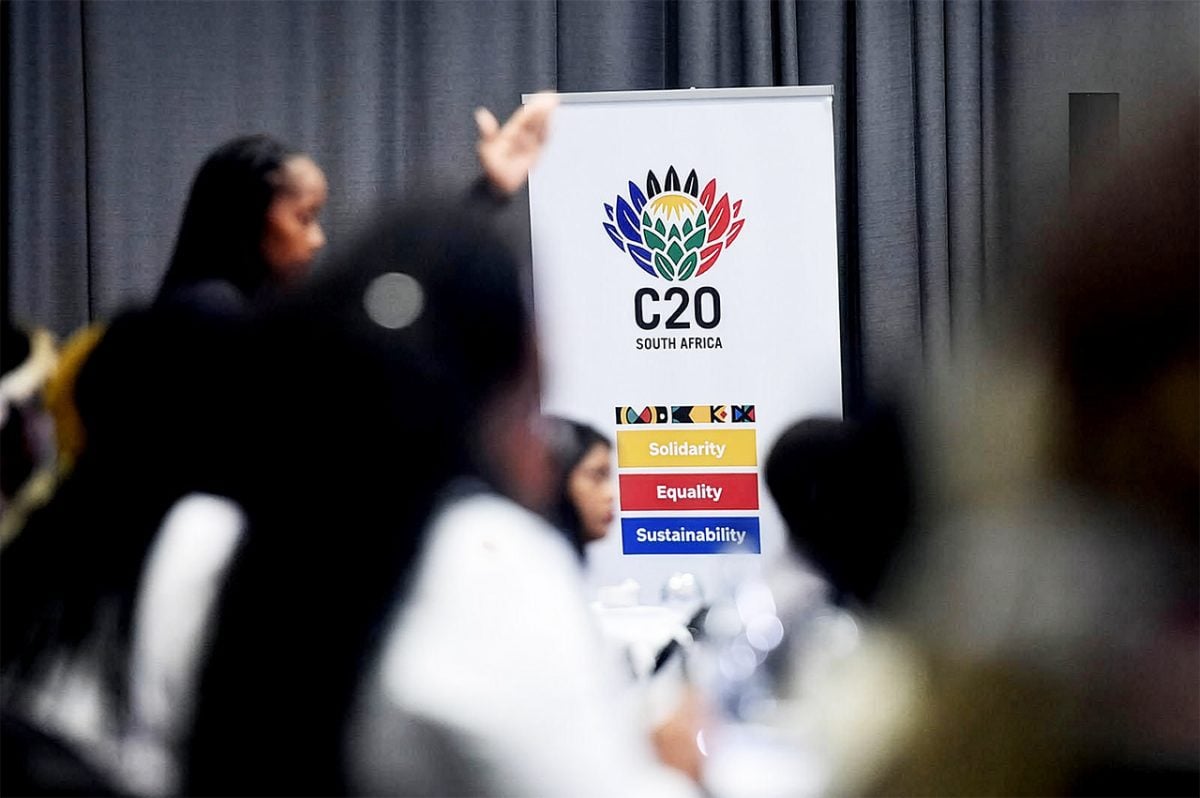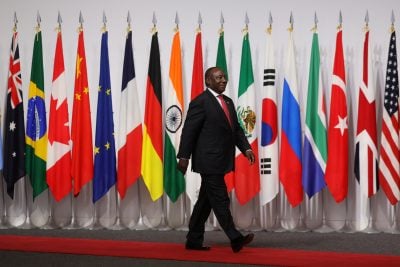The Civil 20 (C20), the official civil society engagement group of the G20, is hoping that delegates at the upcoming heads of state summit in Johannesburg will integrate civil society voices into the G20 decision-making process. In its political declaration to G20 leaders, the C20 pushed for sweeping reforms across five key pillars: economic justice, climate action, technology and cultural sovereignty, food and care economies, and civic participation.
“The wellbeing of people and the health of the planet must be at the centre of the global economic agenda. The time for incrementalism has passed. The path ahead must be grounded in participation, redistribution, and environmental justice,” the declaration states.
The declaration urges world leaders to reject extractive economic models that erode local resources, to recognise local and indigenous knowledge systems as engines of climate and economic resilience, and to embed equity in global migration and environmental governance.
Long list of demands
The C20 declaration outlines a long list of demands which reflects the priorities of the more than 3000 civil society organisations it represents globally. Among its central demands is the reform of global financial institutions, including calls for democratic governance of the IMF and World Bank to better reflect the economic weight and development needs of the global south. The declaration also urges comprehensive debt cancellation and the creation of UN-led mechanisms to manage sovereign debt.
On climate, the C20 calls for a time-bound transition away from fossil fuels, rooted in climate justice and guided by just transition plans defined by communities. The declaration also pushes for the recognition and formalisation of the informal economy, demanding universal labour protections, decent work guarantees, and social safety nets — especially for youth, women, persons with disabilities, and migrant workers.
To safeguard democratic participation, the C20 advocates for the protection of civic space and human rights defenders, and proposes the establishment of a Permanent G20 Gender Equality Taskforce to advance women’s representation and leadership across all sectors.
Free up government resources
Governments across Africa could dramatically improve health, education, and sanitation outcomes by capping debt servicing costs, a new report from the African Center for Economic Transformation (ACET) notes. The independent think tank argues that progress on key social indicators hinges on freeing up public resources currently consumed by debt repayments.
“African governments are currently spending nearly 17% of their revenues just to service debt — often paying more to creditors than they do for their citizens’ health and education,” said Mavis Owusu-Gyamfi, ACET president and CEO, during the report’s release in October.
“This isn’t just a fiscal challenge; it’s a human one. Every dollar used to pay debt is a dollar that could change a life — a child’s chance to learn, a mother’s access to health care, or a community’s path out of poverty.”
The report models the impact of capping debt servicing at 5%, 10%, and 14% of government revenue across 21 African countries. Even modest reductions, it notes, could yield transformative results.
A 5% cap would free up over $320 billion, enabling major improvements in public services. A 10% cap could provide sanitation access to nearly 10 million people and prevent 23,000 child deaths annually.
In Egypt, a 5% ceiling could achieve universal access to clean water and sanitation, while eliminating maternal mortality. In Angola, a 14% cap could save the lives of 700 mothers and 8,000 children under five each year. Likewise a 14% cap In Ethiopia could send 340,000 children to primary school, reducing the out-of-school population by nearly 5%.
While the 5% scenario offers the most dramatic gains, ACET notes that the 10% option “balances fiscal realism with significant human outcomes,” offering a pragmatic path for governments navigating complex debt landscapes.
Will leaders listen?
The findings of ACET’s report add urgency to the C20’s call for heavily indebted developing nations to redirect resources from creditors to communities. The key question now is whether this and other demands made by civil society organisations will be heeded or overlooked when politicians gather together in Johannesburg.
Speaking to journalists in Pretoria, C20 Sherpa Mabalane Mfundisi said the C20 declaration reflects the “lived realities and policy priorities of communities most affected by inequality, exclusion, and crisis.”
“The future is not sustainable without justice. No one must be left behind. The question is: not whether the G20 has been told – but whether they will act on the clear collective demands of the constituencies they serve,” Mfundisi said. “Let this be the year civil society was not simply heard but heeded.”
 Sign in with Google
Sign in with Google 



